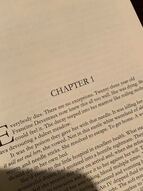 You’re in the book store’s fiction section browsing the new arrivals. A cover catches your eye. You pick up the book and open it to the first chapter. The narrative waxes on about a cottage in an idyllic rolling meadow with grass so green that it takes your breath away. You continue to read about that bucolic scene for four more pages and feel your eyes closing as your consciousness wanes. Your eyes snap back open as you put the book back and move on to the next. The opening chapter of your novel is important. Next to the cover, it may be your most important selling point. So, what makes a good first chapter? What draws a reader in and causes him or her to tuck that book under their arm and head for the check out counter or hit that “Buy” button on Amazon? In the genres of thrillers and action adventure there are certain components that are common to all first chapters. This is not to say that they don’t work in any genre. Let’s take a look at them:
books: Moby Dick, Their Eyes Were Watching God, Pride and Prejudice, The Trial, and Slaughterhouse-Five. How many did you get right?)
0 Comments
 It’s finally happened. My book is ready to drop. After years of writing I had to release my baby into the world. Although, you could call the entire project a labor of love, the final part, the editing, was (putting it mildly) excruciating. Before I say more about my editing ordeal, I must admit that I would have preferred to hire a professional editor. Even a cursory check of blogs and articles on the internet will bear me out. A professional editor for you book is the way to go. However, I wanted to get the book out as I have several others coming down the pike. Unfortunately, I also had significant housing expenses. The final results: no money for an editor. Editing is difficult. And really no fun. But, it’s a necessary part of writing. This is how I did it:
LETHAL PARADISE will be available on Amazon. I hope you take a look at it. |
Archives
June 2023
Categories |
 RSS Feed
RSS Feed